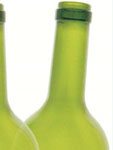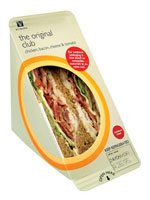
Top stories





Energy & MiningGlencore's Astron Energy gears up with new tanker amidst Sars dispute
Wendell Roelf 10 hours

More news



















Logistics & Transport
Uganda plans new rail link to Tanzania for mineral export boost









Nampak, the biggest packaging company in Africa, says that a number of research reports cite the importance of a tripartite alliance as a means of enabling positive change. For example, Wal-Mart in the US is pushing suppliers to reduce the amount of packaging they use.
In the UK similar initiatives are in place, particularly from larger supermarket chains where focus points include easily recyclable packaging and labelling that educates consumers.
However, the green movement is only beginning to gather momentum locally. Nampak says Woolworths is one of the most progressive retailer own-brands because of its “good business journey” approach that articulates consumer values and prioritises packaging in the context of environmental sustainability.
Chris Dickie, Nampak's retail stores customer champion, says that Woolworths actively engages suppliers and packaging manufacturers to innovate new products and packaging formats.
“There's a definite sense of co operation, inclusiveness and partnership that informs the process from beginning to end and results in everyone working together in a constructive way.”
He says that this approach has enabled Nampak to deliver two innovative and environmentally friendly packaging solutions. Woolworths developed the first pack in association with Homsek Dairies and Nampak.

The retailer challenged Homsek Dairies to enter the growing long-life milk category and to do so differently. While all possible options were researched, it was finally decided to pack the milk in plastic bottles instead of conventional cartons. The transition was aligned with packaging trends overseas and proved ambitious in terms of its complexity, deadlines and design, says Dickie.
The project cost close on R150m and involved constructing a custom-built plant and state-of the-art infrastructure at Nampak Liquid in Bloemfontein, as well as a world-class filling, processing and packaging facility on a 6000m² greenfield site at Homsek Dairies.
Nampak says that it took 10 months to complete and not a single deadline was missed.
“It was a truly collaborative effort,” says Willem Pienaar, MD of Nampak Liquid Plastics.
Pienaar says this is the first time in SA that plastic milk bottles have been used for long-life milk products.
In the past, the technology was not available locally to ensure the levels of light and oxygen protection that are required to keep the product on-shelf for an extended period.
Nampak Liquid drew on the experience of Nampak Plastics Europe, as well as the expertise of Nampak's research and development facility.
As a result, Homsek Dairies is the first dairy in the country to move out of cartons in the category of long-life milk. The plastic bottles are 100% recyclable, in line with the principles of the Woolworths “good business journey.”
Other benefits include variety in terms of decorative capability, as well as design and shape.
“The bottles are easy to open, re-close and handle, and also relatively inexpensive to produce,” says Pienaar.
Woolworths says that sales are up 30% compared with those of cartons. New long-life products are also in the pipeline.

A Woolworths fully biodegradable sandwich pack was initially designed and developed by Nampak Cartons UK. Today the packs are made locally by Nampak Cartons & Labels in Epping.
The cardboard used in the sandwich pack is Forest Stewardship Council (FSC) certified, imported from Finland, and the transparent window is made from polylactic acid, a corn based polymer from the US.
It is the first time that certified sustainable cardboard is being used in food packaging locally.
Nampak says that the Woolworths long-life milk plastic bottles and sandwich packs are excellent examples of how retailers, consumers and packaging manufacturers should be working together in the interests of environmental sustainability.
“The challenge is bigger than any single individual or company,” it says.
“The Woolies experience shows that for an idea to be effectively executed it must originate in a shared space and belong to everyone involved.
“We're pioneering a new way of doing business, where flexibility, co-responsibility and synergy are key factors for success,” says Pienaar.
Source: Business Day
Published courtesy of